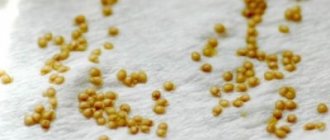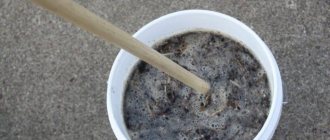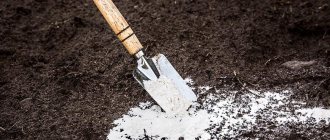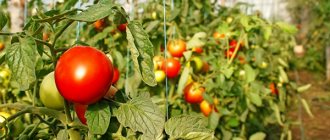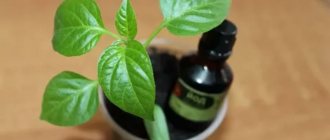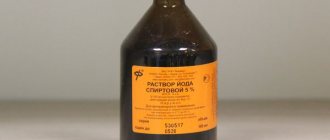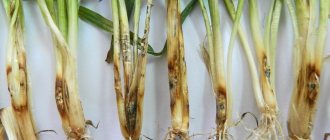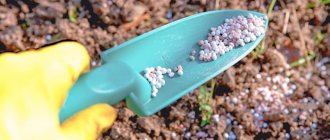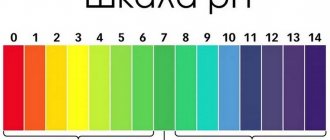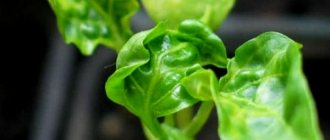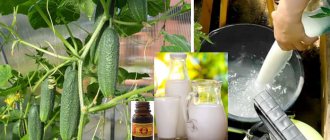Yantarin VRK - description of the product and active ingredients
Water-soluble cone is a natural growth stimulator that is used both for indoor flowers and for fruit and berry garden crops. Its use is guaranteed to activate the vital activity of all plants, accelerate the process of flowering and fruit ripening, and also increase productivity.
In addition to accelerating growth, Amber helps plantings become more resistant to diseases and various unfavorable conditions (for example, temperature changes, frosts, lack of water, etc.)
When using this growth regulator, soil microflora is normalized, and less nitrates accumulate in plant tissues.
The active ingredient of the drug is succinic acid in a dosage of 5 grams per liter. We talk in detail about the benefits of this substance in the article Succinic acid for indoor flowers: application and reviews.
Solution or tablets?
Industrially, succinic acid is obtained from malathionic anhydride, which, in turn, is a by-product of the processing of brown coal. Amber for plants is a pure monopreparation of succinic acid. Tablets of medicinal succinic acid can be bought at a pharmacy, but one tablet will contain 0.1 g of DV, and the rest is a filler (talc, chalk) and, possibly, additional substances that are useless to plants. For spraying and introduction into drip irrigation systems, a solution of “tablet” succinic acid is of little use, because contains a micro-suspension that clogs the nozzles, nozzles and capillaries of the dispensers. For the same reason, orchid leaves need to be washed with water a certain time after treatment with medicinal succinic acid (see below), which once again disturbs the oppressed plants.
Amateur plant growers often use pharmaceutical succinic acid to treat plants, but due to the presence of ballast and additional substances in the tablets, they have to be dissolved for use on plants with the preparation of a mother solution, and the effect of the treatment is less than the maximum possible. The agrotechnical preparation of succinic acid is a water-soluble concentrate (WRC) without ballast and additional additives, easily soluble in any technological container - sprayer tank, watering can, etc. Succinic acid dissolves well in water and the Yantarine working solution does not clog technological agricultural equipment. After manual treatment of plants with Amber, no additional care is required.
Recalculation and recalculation
It is simple to dilute Yantarine instead of pharmaceutical succinic acid: only a simple recalculation of the amount of the drug is required: 1 tablet per 0.1 g of DV = 50 ml of Yantarin VRK. Or 100 ml VRK = 2 tablets. Recalculation of the costs of the drug also shows its benefits, because Yantarin VRK is available in packaging starting from 100 ml; medical succinic acid - plates of 10 tablets. Here you also need to take into account that the liquid preparative form in the container unit of the bottle makes it possible to sample the drug in portions throughout the shelf life, which is generally not possible for succinic acid powder in bags.
What plants is it suitable for?
Amber is successfully used for many types of garden and house plants:
- Strawberries
- Grape
- Apple trees
- Pears
- Currant
- Gooseberry
- Peach
- Plum
- Flower crops (annual and perennial)
- Home indoor plants
The use of Amber for indoor plants improves their gas exchange and cell metabolism, due to which the metabolic process is accelerated, the plant receives more energy and develops faster. This becomes possible thanks to the succinic acid contained in the fertilizer.
Features of preparing root feeding
Root feeding is carried out with a weakly concentrated amber solution. Regular treatment with the substance stimulates the growth of greenery in seedlings of tomatoes and peppers. Fertilizer increases the stress resistance of tomatoes, cucumbers and other crops.
To prepare a solution, dilute 10 tablets with a concentration of 0.1 grams in 10 liters of warm water. Seedlings are watered at least 3 times.
- The first watering is carried out 3 days after picking the plants.
- The second 2 weeks before landing at a permanent place.
- The third watering is 2-3 hours after planting in the ground.
For final watering, use a stronger solution. The working concentration is 2 grams of active substance per liter of water.
Helpful information! 3-4 days before applying succinic acid, it is recommended to feed the plants with nitrogen fertilizers. This promotes better absorption of nutrients from amber.
Instructions for use for plants - how to propagate
The drug is diluted with water according to the instructions. Spraying should be carried out in the morning or evening hours, in calm weather. Mixing with other insecticides and pesticides is not recommended.
It is necessary to spray crops with Amber while wearing gloves, safety glasses and a respirator, avoiding contact of the drug with the skin. Make sure there are no children or pets nearby.
How to use the drug “Yantarin, VRK” for all types of plantings is indicated in the table:
Treatment of plants with Amber occurs by watering at the root and spraying. For indoor flowers, wiping the leaves with a cotton swab dipped in Amber and bathing the roots in the solution is also used (often used for orchids).
How to use succinic acid for indoor flowers
The product can be successfully used for indoor flowers. This will allow them to come to life literally within a week.
Make an aqueous solution of succinic acid at the rate of 1 g of powder in 5 liters of warm water, stir and pour the flowers under the root. You will already notice the results within a week and you will be more than surprised. In indoor flowers. The leaves will turn green and new buds will appear on flowering plants.
However, do not forget that this is not a supplement, but just a stimulant and therefore should not be used frequently. Once every six months is enough.
When to treat plants
Plantings should be sprayed and watered with Amber during the growing season.
It is necessary to spray the plantings in the morning or evening hours to minimize the loss of the drug from the leaves due to active sunlight. It is preferable to spray in the evening, since in this case the harm to bees is also minimized (during the night the drug will be absorbed as much as possible and the bees will not collect it).
House flowers should be watered with Amber solution at the root so as not to touch the leaves:
How to dilute succinic acid for watering plants in the garden
It doesn’t matter whether you bought succinic acid in powder or in tablets, before use you must first prepare an aqueous solution. The tablet must be ground to a powder by kneading it between two spoons.
How to properly prepare an aqueous solution? First you need to prepare a 1% stock solution. To do this, 1 g of powder must first be dissolved in a small amount of warm water, so it will dissolve better. And then bring this solution to a volume of 1 liter. This is done if they use pure powder that does not contain foreign impurities.
When dissolving tablets, pay attention to the weight of the tablets and the content of succinic acid in it. So, a 0.5 g tablet contains 0.1 or 0.05 g of the desired product, and the rest is excipients. This means that to obtain 1 liter of a 1% aqueous solution you need to take 10 or 20 tablets, respectively.
Having prepared the mother solution, it is easy to prepare a working solution from it. Typically, 0.01%, 0.02%, 0.001% and 0.004% solution are used for spraying and watering.
- To obtain a 0.01% working solution, you need to dissolve 100 ml of a 1% stock solution in 10 liters of water;
- For a 0.02% solution in 10 liters of water, add 200 ml of a 1% solution;
- Accordingly, for 0.0001%, add 100 ml of a 1% solution to 10 liters of water;
- A 0.004% solution is prepared as follows: 40 ml of a 1% original solution is dissolved in 1 liter of water.
The prepared solution must be used within 3-5 days, otherwise it will lose its beneficial properties. No special safety measures are required when working with it, since the substance is non-toxic. The product quickly decomposes and does not accumulate in the soil and does not pollute the environment.
It is important to note that succinic acid acidifies the soil. This should be taken into account, since many vegetable and fruit crops do not like acidic soil.
To eliminate this problem, you need to neutralize the prepared solution with alkali, namely add 1 tbsp to 1 liter of solution. l. ammonia (ammonia). In this case, the ammonium salt of succinic acid is formed, otherwise ammonium succinate, since the word “succinum” means amber in Latin. It will also be an additional source of nitrogen.
Application of Amber for orchids
Everyone knows that orchids are extremely capricious flowers that take root at home only with a few “selected” gardeners. But this product will help orchids to take root well and will increase the chance of breeding them at home by at least 2 times.
Method of using Amber for orchids:
- Stimulating watering at the roots is carried out once every 3-4 weeks, and only during the active growing season of plants. Keep in mind that watering sleeping orchids with Amber or any other stimulant simply means killing them! Dosage – 20 ml of concentrate per 1 liter of water. Water directly under the root, in small portions, at intervals of 1-3 hours.
- Soaking orchid roots before planting or replanting the bulb. We advise you to carry out this action together with wiping the leaves. The solution is prepared in the same way as for watering at the root. The roots of healthy orchids are soaked in the solution for half an hour; if the orchid is replanted because it is withering, the roots should be soaked for 2-2.5 hours.
Note! Orchids revived by Yantarine or other growth stimulants are prohibited from being planted in a solid container or artificial substrate until their constant flowering is restored.
When is the drug used?
Aqueous solutions of a growth stimulator from a domestic manufacturer are used at any stage of plant growth - from soaking seed material to processing fruit-bearing crops. It is used for spraying green mass, soaking the root system, and treating the crown of ornamental shrubs.
Where to buy and price of the stimulator
Since this is a very popular and widespread remedy, you can buy “Yantarin, VRK” in any garden store (where seeds, seedlings, etc. are sold), in large supermarkets (Leroy Merlin, Auchan, Perekrestok, Magnit Family, etc.). etc.), as well as in online stores (but make sure that the online store has a free pick-up point in your city, otherwise you will pay more for delivery than for the drug itself).
The product is available in several volumes:
- 100 ml. – from 60 rubles.
- 500 ml – from 250 rubles
Application of succinic acid on specific crops
Treatment of potatoes with succinic acid
Pre-planting treatment of tubers with a 0.004% solution promotes better germination of tubers.
Treatment of grapes with succinic acid
Spring spraying of vines and plant leaves with a 0.01% solution (or less concentrated) increases resistance to frost, improves flowering and increases yield.
Treatment of tomatoes (tomatoes), eggplants and peppers with succinic acid
Spraying tomatoes three times, one before and two after flowering, increases the yield and quality of the fruit. If nitrogen fertilizers are applied in excess, the use of succinic acid can reduce the level of nitrogenous substances in plants.
Reviews from gardeners about Yantarin VRK
- Elena Dmitrievna. What I appreciate most about Yantarine is that it is a natural product and it is safe for people, animals and nature. I grow tropical plants at home - and they are notoriously capricious. In winter, it is very difficult to preserve them because of the dry air from the radiators - before, I either dried out or flooded my flowers, and it was a lot of pain. A neighbor advised me to try this remedy (and, in principle, Succinic Acid) - she was a biologist and worked in phytosanitary supervision, so I trust her. Of course, I bought the product, read the book with instructions that was stuck on the back - I’m delighted, why didn’t I know about it before? I won’t describe it, it’s all easy to find. In my case, it helped regulate excess and lack of moisture, from which my plants previously suffered so much. This preparation can be used in several ways: watering at the root gives rapid growth and formation of greenery. Treating seeds with it gives increased germination. Treatment of cuttings increases root formation. The main thing is to use it no later than 15-20 minutes after dilution, otherwise the succinic acid will evaporate.
- Valentina. I want to share my delight with this growth stimulator - a miracle remedy! I once bought myself an orchid at Ikea, on sale. Of course, it was already inferior - the leaves were yellow and hanging, there were almost no roots. I decided to nurse. Watered by immersing in a warm solution. The turgor became stronger, the roots began to grow, my orchid survived! I saved her, I’m very proud! But without Yantarina, naturally, it would not have worked. So this is a powerful remedy, tested on myself and I recommend it to everyone from the bottom of my heart!
Useful articles:
What are the benefits of succinic acid for plants?
You can purchase succinic acid both in pharmacies and in gardening stores. In pharmacies the drug is sold in tablets, and in specialized stores most often in powder.
Succinic acid is a product of processing natural amber, which has many beneficial properties for seedlings:
- Improves soil microflora.
- Stimulates plant growth.
- It is an anti-stress agent, which helps plants quickly take root after picking and transplanting.
- Helps revive depressed plants. Seedlings that do not have enough light, heat, or have dried out due to lack of moisture should be watered. Attention! Succinic acid is an excellent nutrition for both beneficial and harmful microbiota. Therefore, plants with blackleg and infected with pathogenic flora cannot be watered with it.
- Strengthens immunity, due to which seedlings planted in open ground are more resistant to adverse conditions.
Since succinic acid does not contain toxins, it is considered an environmentally friendly fertilizer. Therefore, solutions prepared from it are widely used for feeding seedlings at home and plants in the garden.
